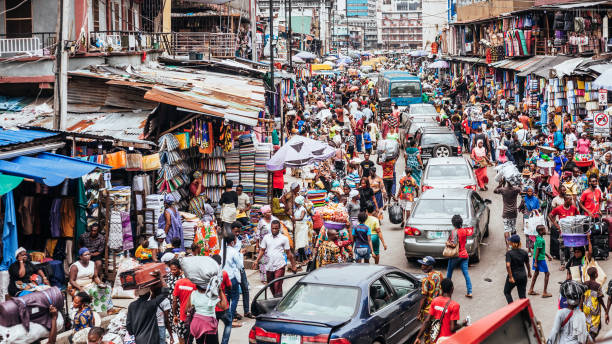The World Bank has maintained its projection that Nigeria’s economy will grow by 3.6 per cent in 2025, even as it downgraded global growth expectations due to rising trade tensions and widespread economic uncertainty.
The projection was contained in the bank’s Global Economic Prospects report released Tuesday.
It forecast that global growth in 2025 would slow to 2.3 per cent, a 0.4 percentage point cut from its earlier estimate, citing “higher tariffs and heightened uncertainty” as a “significant headwind” for most economies.
“Growth in Nigeria is forecast to strengthen to 3.6 per cent in 2025 and to an average of 3.8 per cent in 2026–27,” the report said.
“Following monetary policy tightening in 2024 to address rapid currency depreciation, inflation is projected to decline gradually.”
Earlier this year, the World Bank had projected 3.6 per cent growth for Nigeria in 2025, building on an estimated expansion of 3.4 per cent in 2024. Its latest report reinforces that view, attributing the outlook to macroeconomic reforms and investment in key service sectors.
“Domestic reforms have helped spur investment, supporting growth in the services sector, especially in financial services and information and communication technology. Services activity will continue to be the main driver of growth, while the industrial sector will remain constrained by subdued crude oil production as last year’s slight rebound wanes.”
The World Bank also downplayed the direct impact of global trade tensions on Nigeria and sub-Saharan Africa (SSA), noting limited exposure to manufacturing exports and a heavier reliance on commodities.
“The direct impact on SSA growth of further escalation in global trade tensions may be contained owing to the limited direct exposure to export markets in China and the United States, apart from commodity demand,” the report stated.
“Indeed, a worse-than-expected economic slowdown in China would adversely affect the demand for minerals and metals. Lower prices for these commodities, which are the main exports of several SSA countries, would have particularly negative effects on these countries through diminished economic activity and even tighter fiscal space.”
Per capita income growth in Nigeria and SSA is projected to average just 1.6 per cent annually between 2025 and 2027, too low to make a meaningful dent in poverty. “This pace would mean that, in terms of living standards, the region would fall even further behind other emerging markets and developing economies, excluding China and India,” the bank warned.
“These per capita income gains will remain inadequate for significantly reducing extreme poverty in the region, home to most of the world’s poor.”
ALSO READ: IMF downgrades Nigeria’s economic growth forecast
The bank also flagged rising insecurity, climate shocks and constrained fiscal space as major risks to sustained development in the region.
“Levels of violence in SSA remain high, weighing on economic activity,” it said.
While public debt levels are expected to fall gradually, the World Bank noted that “debt servicing costs remain elevated, limiting fiscal space in many SSA economies for development-promoting expenditures, especially given the recent rise in sovereign spreads.”
It warned further that declines in foreign aid and worsening weather events could amplify hardship across the region.
“Further declines in official development assistance inflows risk worsening humanitarian and fiscal challenges,” the report said. “The share of the population affected by adverse weather events, which destroy crops and dampen economic activity, has increased sharply in recent years.”
Despite these global and regional risks, the World Bank said Nigeria’s growth outlook remains relatively steady due to domestic reforms and the country’s limited exposure to global trade fragmentation.
Support PREMIUM TIMES’ journalism of integrity and credibility
At Premium Times, we firmly believe in the importance of high-quality journalism. Recognizing that not everyone can afford costly news subscriptions, we are dedicated to delivering meticulously researched, fact-checked news that remains freely accessible to all.
Whether you turn to Premium Times for daily updates, in-depth investigations into pressing national issues, or entertaining trending stories, we value your readership.
It’s essential to acknowledge that news production incurs expenses, and we take pride in never placing our stories behind a prohibitive paywall.
Would you consider supporting us with a modest contribution on a monthly basis to help maintain our commitment to free, accessible news?
TEXT AD: Call Willie – +2348098788999











